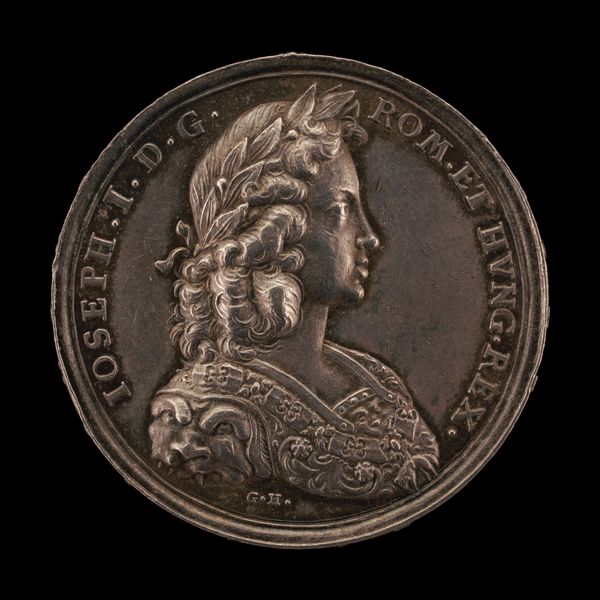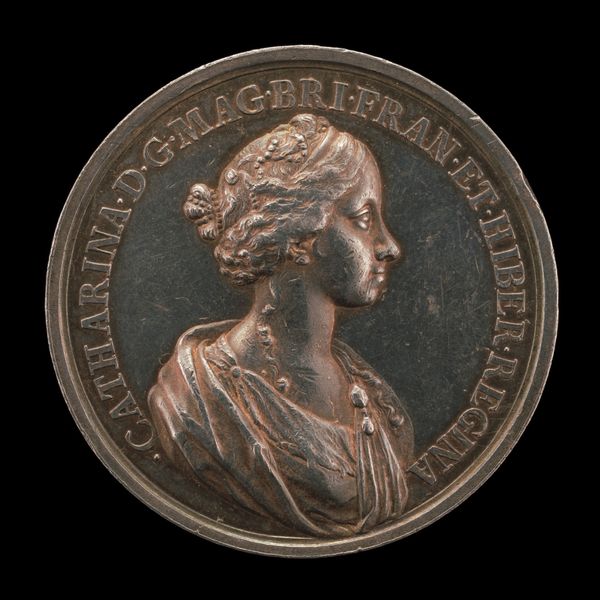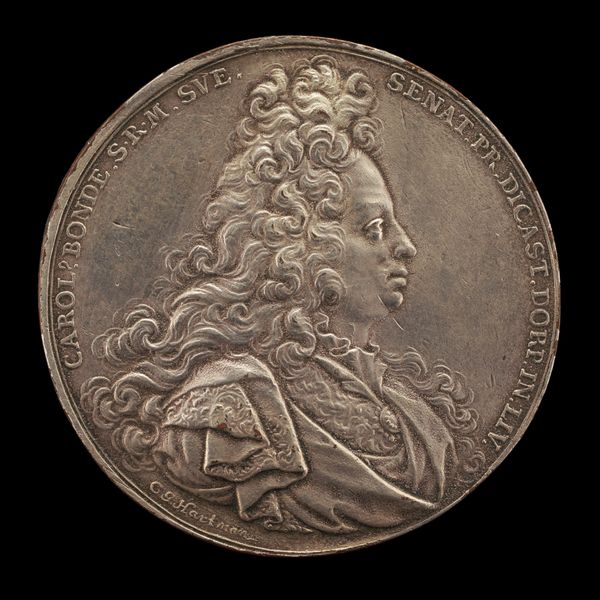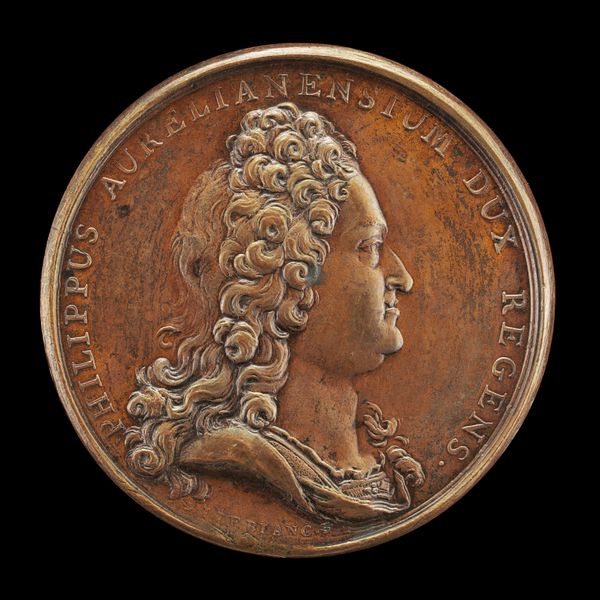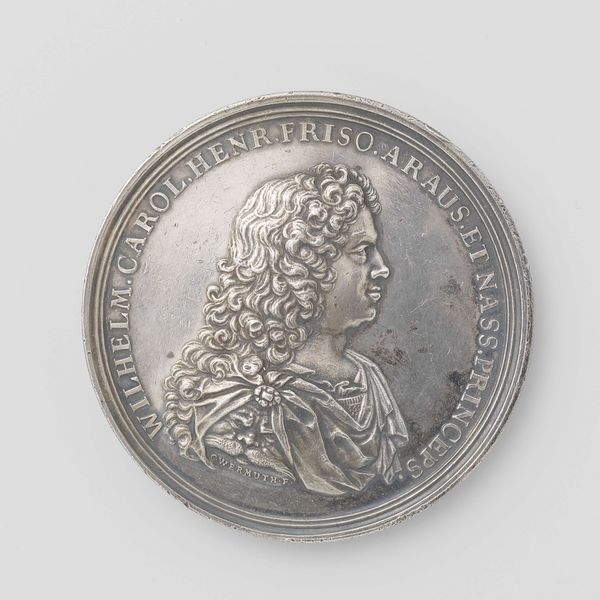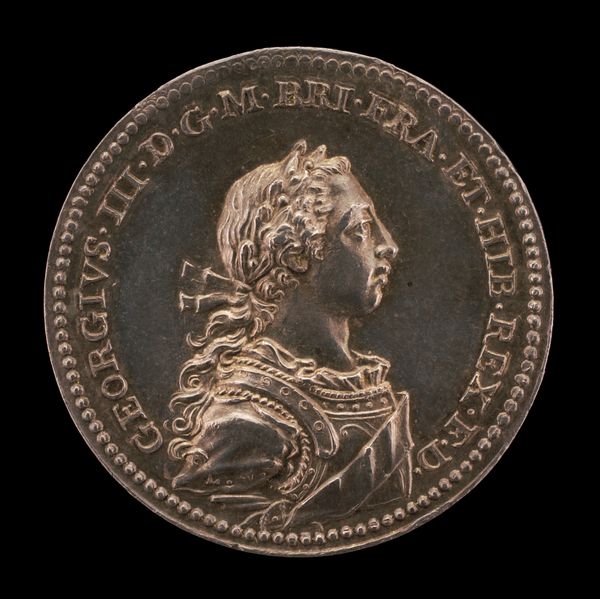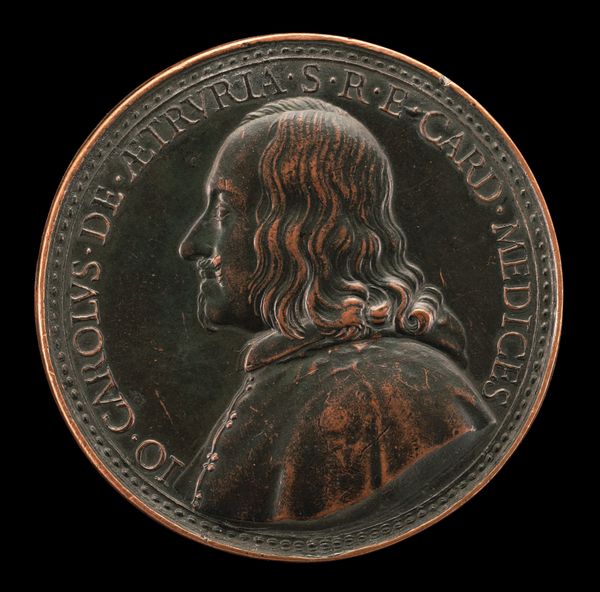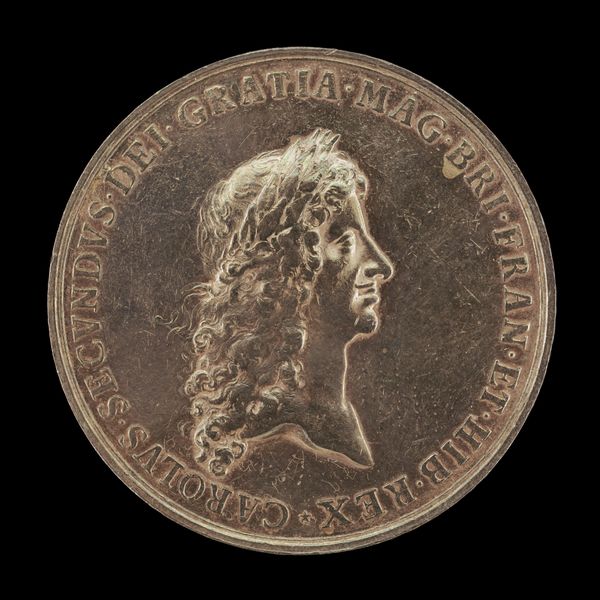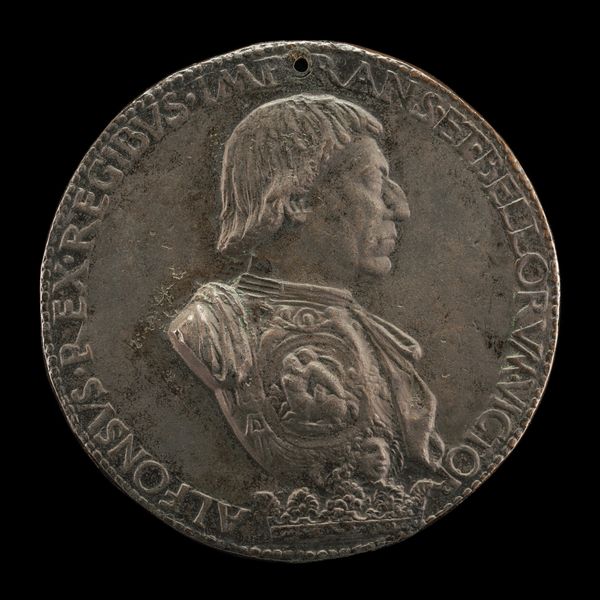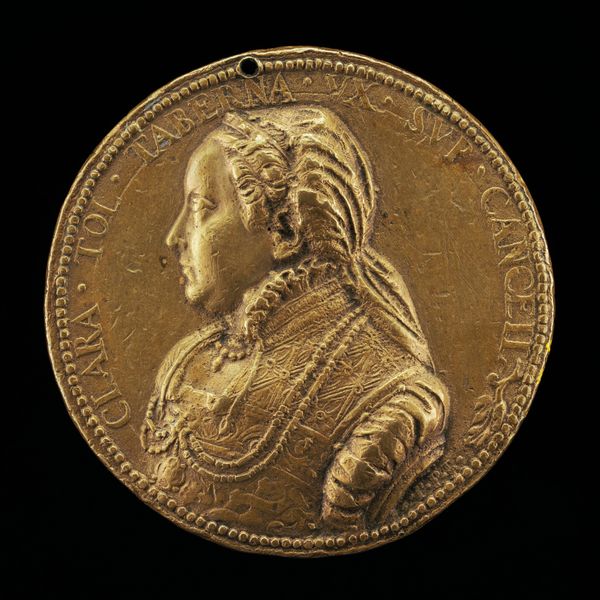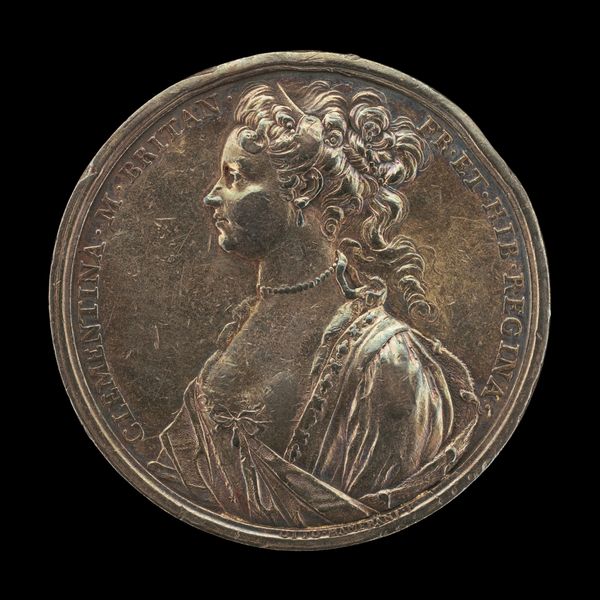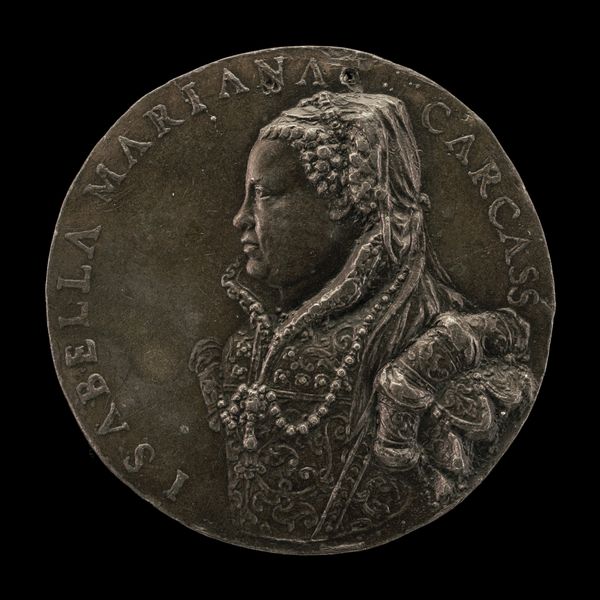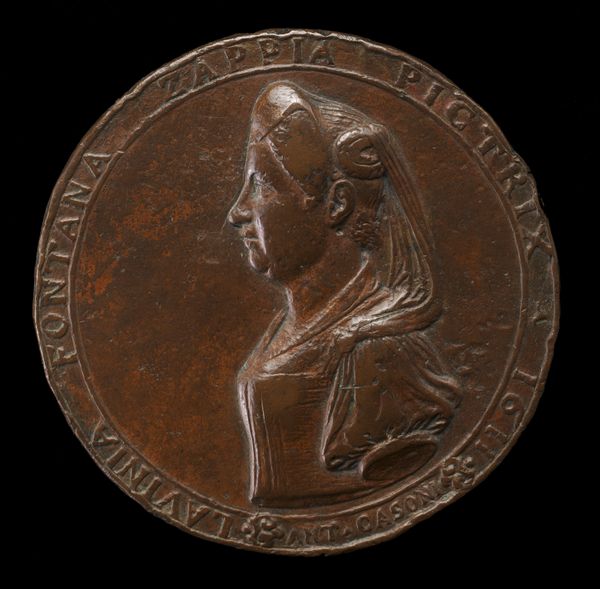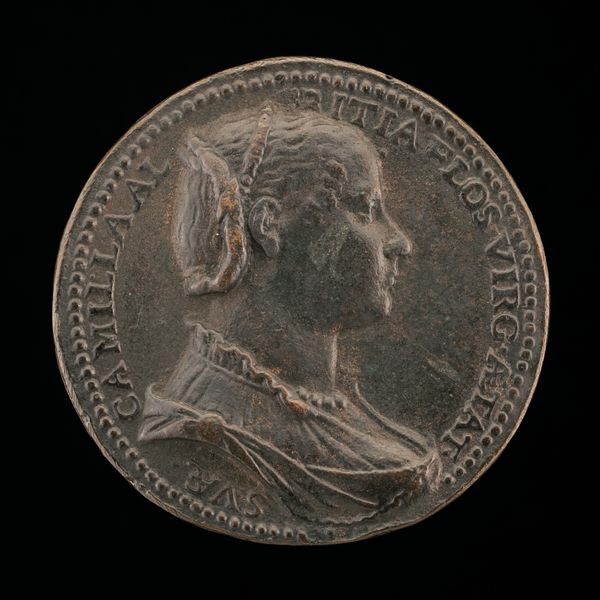![Charles II, 1630-1685, King of England 1660 [obverse] by Jan Roettiers](/_next/image?url=https%3A%2F%2Fd2w8kbdekdi1gv.cloudfront.net%2FeyJidWNrZXQiOiAiYXJ0ZXJhLWltYWdlcy1idWNrZXQiLCAia2V5IjogImFydHdvcmtzLzA0ZWIwMDkwLTcyNmUtNDk5NC05ZTExLTlhOTcyZDViNzgxMy8wNGViMDA5MC03MjZlLTQ5OTQtOWUxMS05YTk3MmQ1Yjc4MTNfZnVsbC5qcGciLCAiZWRpdHMiOiB7InJlc2l6ZSI6IHsid2lkdGgiOiAxOTIwLCAiaGVpZ2h0IjogMTkyMCwgImZpdCI6ICJpbnNpZGUifX19&w=3840&q=75)
metal, relief, sculpture
#
portrait
#
medal
#
baroque
#
metal
#
sculpture
#
relief
#
sculpture
#
history-painting
Dimensions: overall (diameter): 4.32 cm (1 11/16 in.) gross weight: 38.14 gr (0.084 lb.) axis: 12:00
Copyright: National Gallery of Art: CC0 1.0
Editor: So, this is a metal medal, created around 1662 by Jan Roettiers, titled 'Charles II, King of England'. It presents a regal profile, and its detail seems really quite delicate. How would you interpret this piece? Curator: The portrait shows Charles II crowned with laurel. What does laurel traditionally signify? Editor: Isn’t it for victory? Or excellence? Like, he’s being presented as a triumphant ruler? Curator: Precisely. The image is packed with such symbolism. Roettiers is not just portraying a king; he's crafting an idea of kingship. It uses classical imagery. What impact would linking the monarch to classical imagery have on the viewer? Editor: It might evoke ideas of a golden age, a return to order after conflict. He came to power after a period of huge social and political disruption. The medal might serve as an explicit promise of the restoration of traditional values. Curator: And who might this object have been aimed at? Consider its purpose, size, and how it might be circulated. Editor: Potentially wealthy supporters, those with the means to own such a commemorative object. I suppose it visually reinforced Charles II's legitimacy amongst those who mattered. Curator: You have it. It reminds us how symbols embed themselves in objects and transmit meaning across generations, reinforcing power structures. It makes you think about the intended audience, and the conscious choices made by the artist to create a certain lasting message. Editor: Yes, I see now the visual language they’re speaking through this medal is actually deeply powerful, projecting specific ideals and solidifying historical narratives. Thank you!
Comments
No comments
Be the first to comment and join the conversation on the ultimate creative platform.
